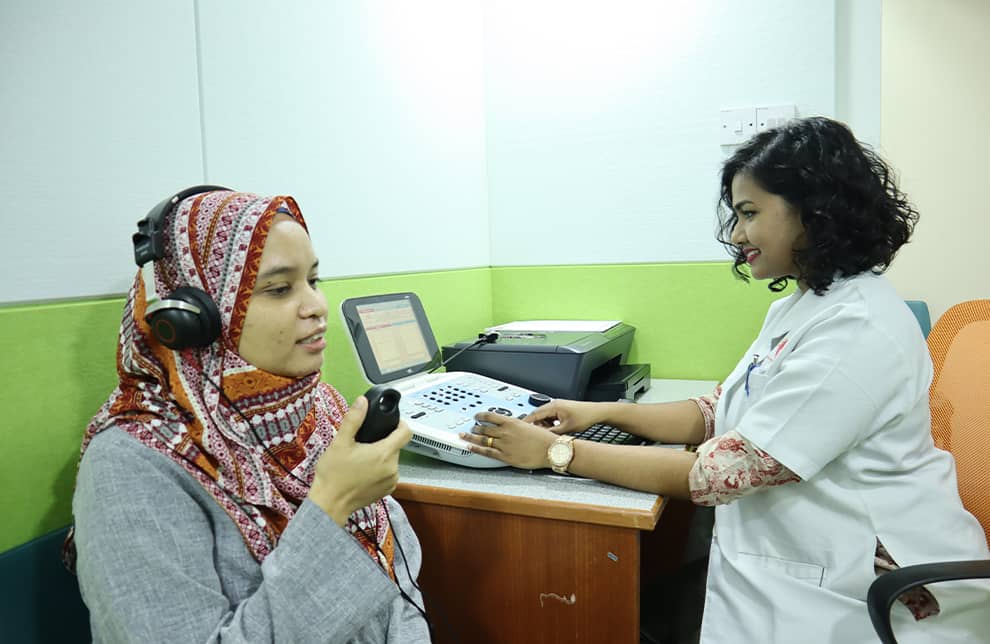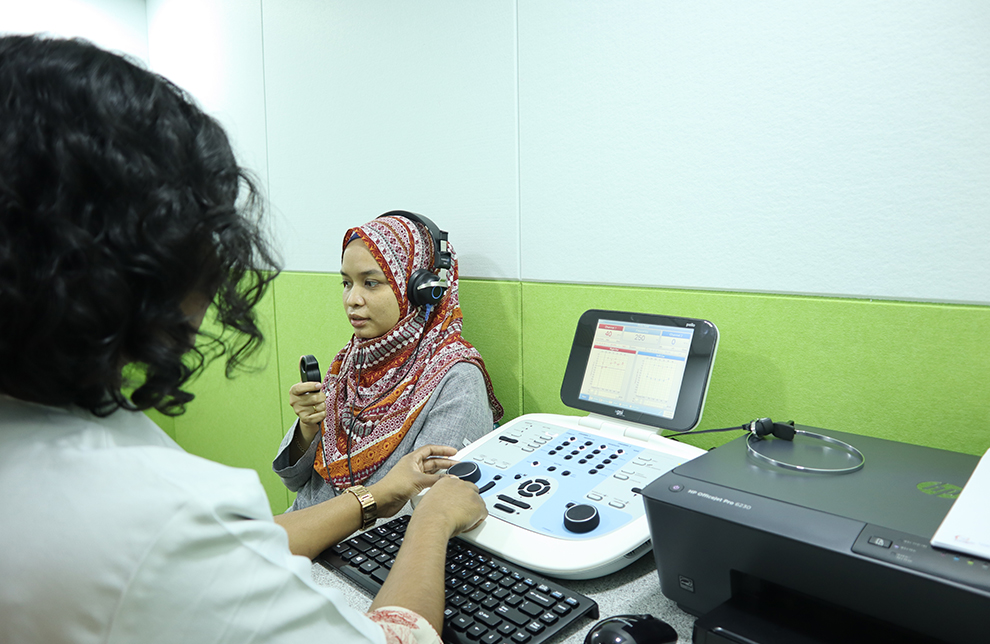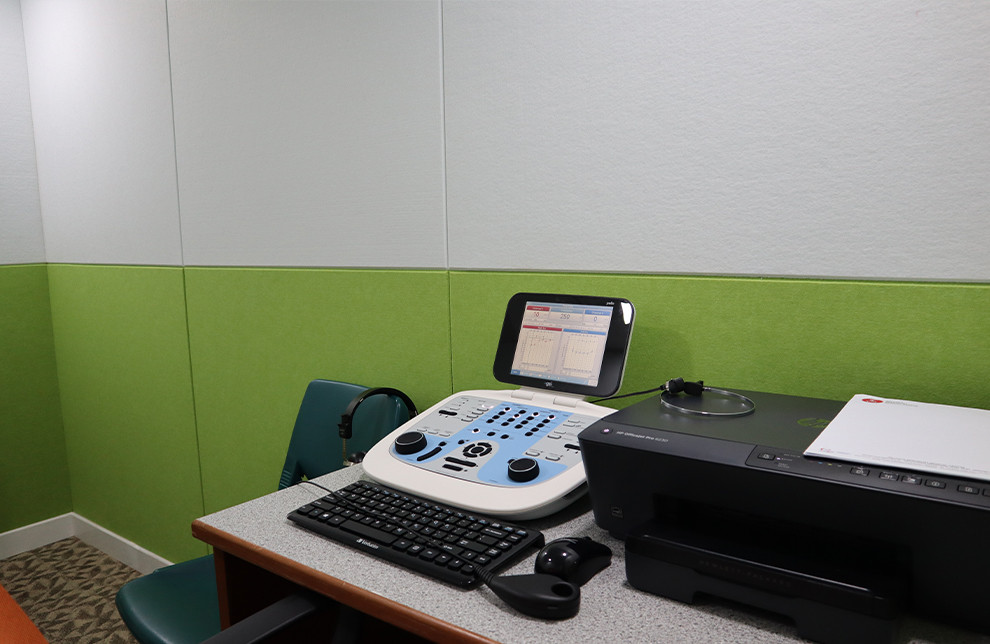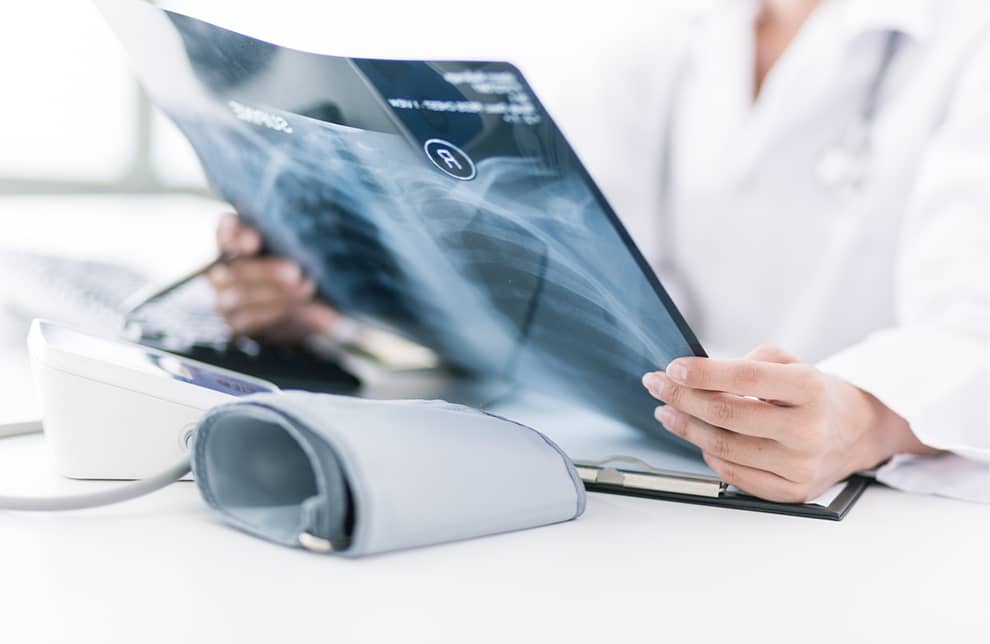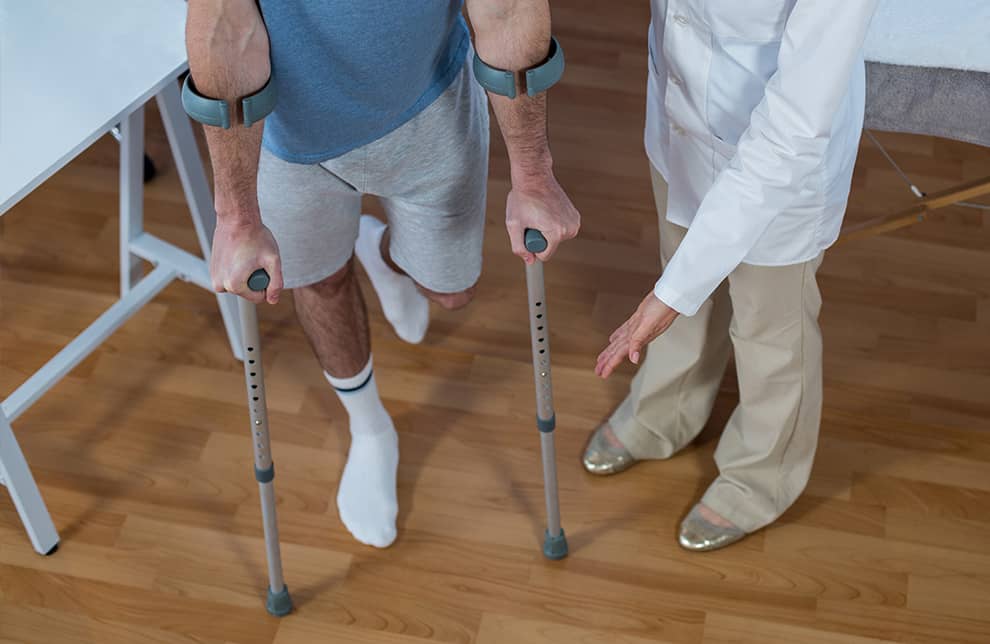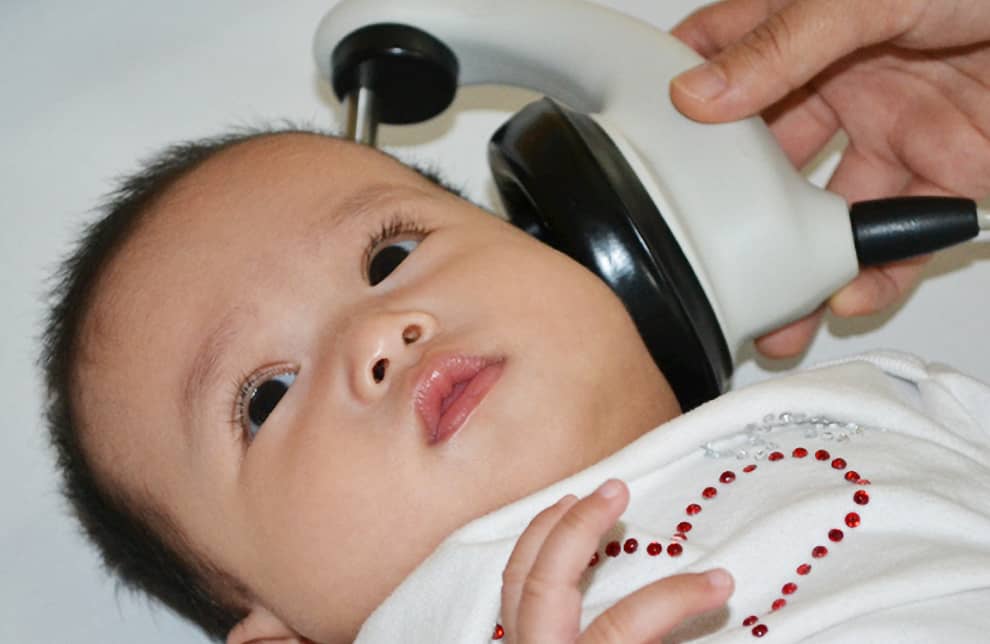The Audiology Service provides Audiological assessments of balance and hearing for all age groups. The service provides digital hearing aids ensuring they are verified and continuously evaluated using current best practice methods.
Tympanometry
Tympanometry provides a way, along with a physical exam, for doctors to diagnose and monitor problems with the middle ear. It can help with diagnosing disorders that can lead to hearing loss, especially in children.
The test measures your ear’s response to both sound and pressure. The results are recorded on a graph called a “tympanogram.”
The test can tell the doctor if you have:
- Fluid in your middle ear
- Otitis media (ear infection)
- A perforation (tear) in the eardrum
- A problem with the Eustachian tube (tube that links the upper part of the throat and nose with the middle ear)
- To chronicle how much fluid a child has in their middle ear over time, tympanometry can be performed every few weeks for several months.
Procedure
You won’t be able to move, speak or swallow during the test or it may give an incorrect result. If your child is having tympanometry, they may need to be shown how the test is done using a doll so they can prepare for the loud noises and practice being still beforehand. The test takes about two minutes for both ears. Anyone from infants to adults can have tympanometry, which usually takes place in a doctor’s office. There are no risks during a tympanometry test.
Pure Tone Audiometry (PTA)
Pure tone audiometry is a hearing test used to determine the presence or absence of hearing loss. If hearing loss is present, the audiologist will be able to determine both the type and degree of hearing loss.
Auditory Brainstem Response (ABR)
The auditory brainstem response (ABR) test gives information about the inner ear (cochlea) and brain pathways for hearing. This test is also sometimes referred to as auditory evoked potential (AEP). The test can be used with children or others who have a difficult time with conventional behavioural methods of hearing screening. The ABR is also indicated for a person with signs, symptoms or complaints suggesting a type of hearing loss in the brain or a brain pathway.
The ABR is performed by pasting electrodes on the head—similar to electrodes placed around the heart when an electrocardiogram is run—and recording brain wave activity in response to sound. The person being tested rests quietly or sleeps while the test is performed. No response is necessary. ABR can also be used as a screening test in newborn hearing screening programs. When used as a screening test, only one intensity or loudness level is checked, and the baby either passes or fails the screen.

